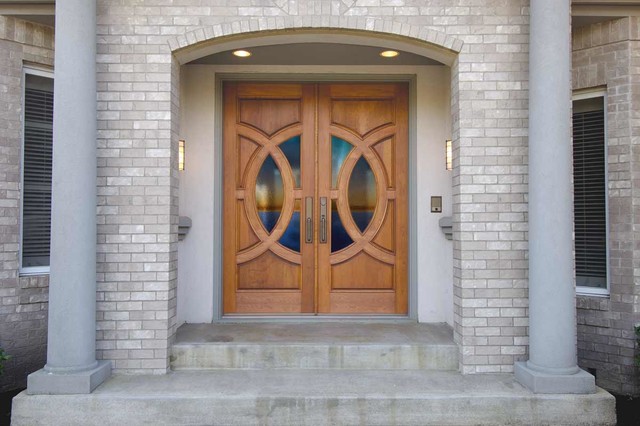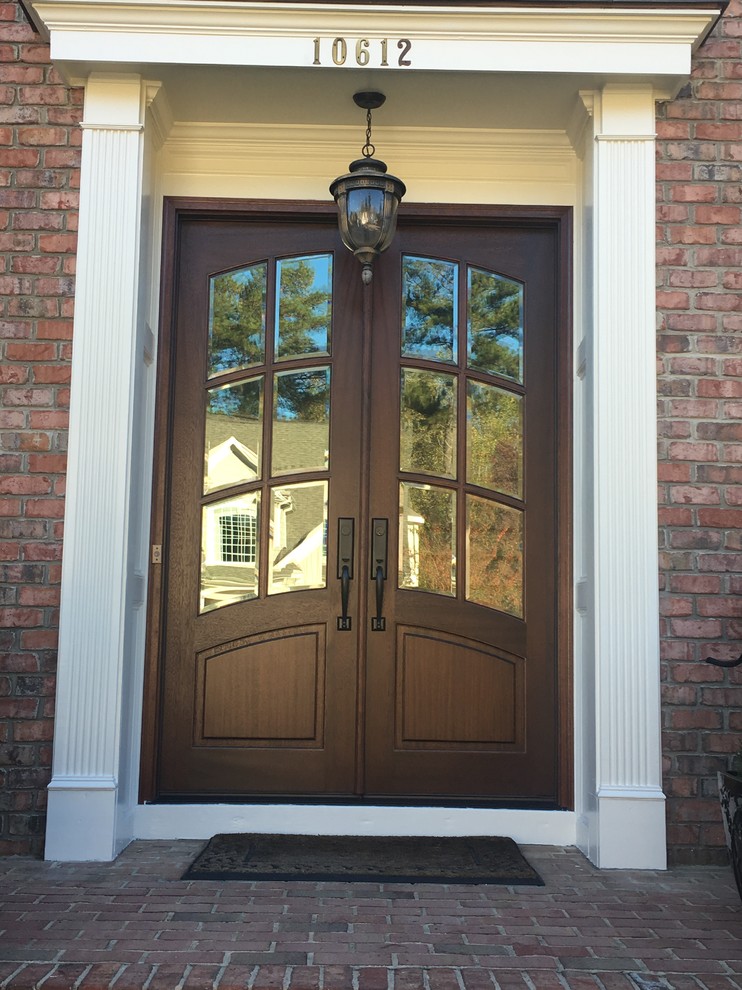

In Malaysia, it is common practice (amongst all of the various ethnic communities) to remove their shoes before entering any house or apartment. Modern Korean apartments often have built-in shoe cabinets at the hyun-gwan, which doubles down as a storage area for other objects. Entering a house with shoes on is considered disrespectful, as it is synonymous with bringing in outside dirt and grime to one's residence. In the bathroom, Koreans typically wear rubber slippers to prevent slipping. Some households may use indoor slippers, but it is far more common to walk around barefoot or in socks. In Korea, it is customary to take one's shoes off at the entryway, known as hyun-gwan (현관), before entering a house. In social reunions or parties at houses, guests are not always demanded to take their shoes off, especially in big celebrations such as the Chinese New Year, when the number of guests in a house is frequently superior to the number of slippers available for guests. It is habitual to remove outdoor footwear and put on a pair of slippers after entering the Chinese household, although some people in certain parts of China do not take off their shoes at home. On tatami, it is often considered to be inappropriate to wear even uwabaki. One must change into appropriate footwear before entering the corresponding spaces. Only the indoors is considered a clean space, and it is typically kept very tidy by the homeowner. The outdoors are considered to be an extremely unclean space by the Japanese people, alongside the aforementioned toilet area. In addition, there are separate toilet slippers ( トイレスリッパ, toire surippa) into which one changes before entering the washroom from the rest of the house. In Japan, the genkan, an entryway area to a house, apartment, or building, is where outdoor shoes are removed, and where one changes into uwabaki, indoor slippers. "Plzz REMOVE YOUR SHOES." Sign at entrance to stupa. Israel is also home to many Muslims, who harbour much stricter shoe-wearing rules than their Jewish counterparts. During the Priestly Blessing in the synagogue, the kohanim (priests) will remove their shoes. While it is not mandatory in Judaism, many Israeli Jews remove their shoes at home. Arabs are required to remove their shoes when entering a mosque, as are all adherents of Islam. In the Arab world, no shoes are allowed indoors, as the shoes' soles are seen as dirty and unsanitary. It is also common to remove shoes in kindergarten schools and, although rarely, in some small private businesses. In Iran, removing one's shoes before entering a home is a widespread tradition, with the cleanliness of a home very important for families.

In Pakistan, Afghanistan and other countries where having carpeted rugs are common, it is considered necessary to take one's shoes off in order to walk on carpeted rugs inside the home. Many Asian countries typically follow the tradition of removing shoes before entering a house. Christian denominations of Oriental Orthodoxy who require the removal of shoes before entering a church, such as the Coptic Orthodox Church, Ethiopian Orthodox Church and Indian Orthodox Church, do so not on a cultural basis, but in following of biblical injunctions in Exodus 3:5 and Acts 7:33. As such, in many mandirs and mosques, as well as in churches and synagogues of the Indian subcontinent and Middle East, it is customary for worshippers to remove their shoes before entering a house of worship, where they believe they are entering into the presence of the divine.

The cultural context of this narrative regards shoes as bringing in dust into the home and removing one's shoes "would be a way of recognizing one's personal uncleanness in the presence of holiness." Hinduism and Islam also regard feet as being unclean it is considered sacrilegious to touch books with one's feet and an insult to point one's feet at someone. In the Bible, God commanded Moses to remove his sandals before approaching Him on Mount Sinai (cf. In religions originating in the Indian subcontinent and in the Middle East, it is customary to remove one's shoes when entering a house of worship.


 0 kommentar(er)
0 kommentar(er)
